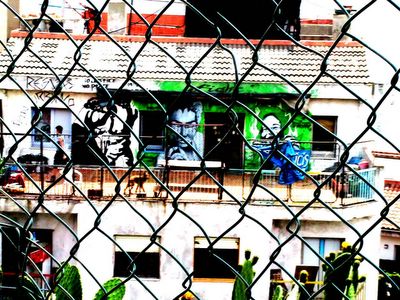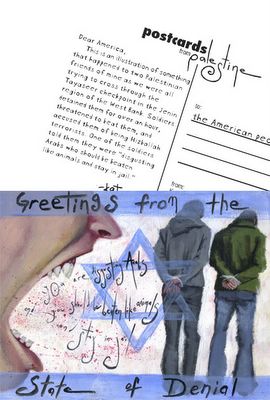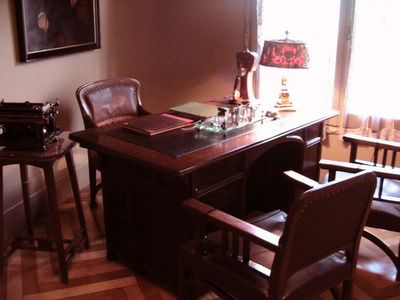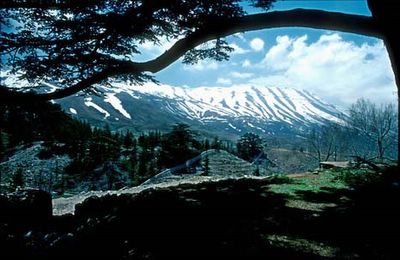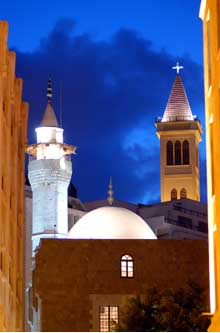Results from the negotiation roomAnd Happy New Year all Thanks again
Chas,
Andrey, started by disagreeing but he proposed this:"We start by suggesting the first step in a plan to bring peace". Let me start by not agreeing, as I think that we should start from the other end: How do you see the final solution to the Israeli-Palestinian conflict? What will it be like, this situation, in which there will be an equilibrium between the achieved and unachieved demands of both sides, between what is just for these and those and of course what is just (period). Why start with this question? Because you can move the discussion on from here, with questions like: "What are the obstacles towards achieving that", "How do we deal with those obstacles" and so on.”
And so we did and this is what we came up with: ( thanks
mone,
Snurdly,
Lirun,
Ingrid,
Andrey,
Ibn Bint Jbeil,
Rhiannon and
Zee for commenting and moderating)
I- SPECIFIC PLANS:
- Two-state solution: We all agree.(
Lirun suggested peace keeping force running along the borders)
- Fair peace:(Israel is supported by the US and is the 4th strongest military power in the world but that shouldn't imply that Israel should use its power on its neighbor. Hamas, on the other hand, need to have defined 'demands'. The Palestinians need a fair representation on the way of their independence).
Which raised
mone’s concern, “I wonder however, what is the exact ambition of the Israeli government? What is exactly the driven principles behind the Israeli Government backed by the US, especially after I found out more about the philosophy of the "elite" and their own ambition of controlling the world no matter how it maybe destructive to their people or others.”
We agreed that this won't get us anywhere for now.
- Defined borders and real independence:
(with the surrounding countries once and for all, sea, air and water. Plans should be presented to the UN, land mine maps and so on. 48 borders).
Andrey said, “If, at least based on 67 borders,
Gaza and the Bank should be connected, by land, constructing 2 parts of Palestine and 2 parts of Israel - all connecting in one point (use your imagination), I think that it would be fair, and it would give the Palestinians a better feeling about the arrangement - so they would not tell that they have been tricked. Also people would not have to pass through check points that way, while going from Gaza to the West Bank. Also, if the border includes jewish settelments inside the west-bank, they should be given the right to choose to stay under the Palestinian rule (there are many normal people behind the green line, not just settlers.”
1- Checkpoints should go
2- Settlements should go
3-
Jerusalem will be a meeting place (
Lirun’s romantic idea).
4-
Borders + Water:Andrey said, “This is actualy not such an issue, water can be dealt with as we have seen in Jordan-Israel peace treaty, where Israel is obliged to supply a given amount of water to Jordan per year. Projects like the
National Water Carrier can be built to Palestine, or better: Palestine can be connected to the soon to be built Israely-Turkish pipe line (of gas, oil and water). The question is about the borders between Israel and Palestine: there are some families scattered around the 2 sides of the border, and so on.”
-
United Palestinian government: Unified representation for Palestine in the form of a legitimate government diplomatically respected by the international community is crucial (A just well-defined withdrawal will push the two Palestinian entities in power into agreeing on the proposed solution. that way Hamas won't be obliged to dismiss Fateh and traitors because they conceded to whatever is given to them. something Arafat couldn't do during the Oslo accord).
- Economical prosperity:(Palestine will need the help of other countries (hopefully Arabic countries as well) to recover economically. prosperity gets rid of anger).
Rhiannon said, “Monetary concessions do need to be made to Palestine, for their agriculture, hospitals, and educational systems”.
- Points we didn’t agree on:1-
The refugees. The right to return
2-
The prisoners
3-
Shabaa farms and Golan heights.
II- IDEALLY:-
zee and
Ingrid:
SEPARATE RELIGION FROM STATE ON BOTH SIDES.
STOP THE VIOLENCE ONCE AND FOR ALL.
- We need to
learn from past mistakes. The unilateral withdrawal and the punishment mentality don’t work and is still under the abuse of power mentality.
- New beginning:(how do we educate a new Israeli generation that is not mostly military and how do we raise a new Arabic generation that don't hate Israel?). "Recognition of Israel"?
- Think simple:Any Israeli would not wish to bomb the Palestinians and any Palestinian would not wish to bomb the Israelis. We all agree on peace. How do we bring forth the people's opinions? Who's creating this? (the politicians and we're paying for it and our children will after us. we need to stop the denial. I say there's a dangerous theocratic mentality controlling us and you have to say there's a neo-Zionist movement trying to draw the map for the new middle-east. both scare me to death. we need to say that neither represent people like us. most of the poor people who just want to be safe and go on with their daily life are like me and you)
- Reinstate trust and show good intentions:
Return what belongs to Syria and Lebanon. Then if HA won't have a cause, Syria won't have an excuse and the Palestinians will be content if agreement was reached and they will ask to be left alone)
- Identity and acceptance:
mone thought, “Israel was formed in the middle of Arabic Region that speaks one language "Arabic" and has similar background. It actually seeks an isolated "identity" from its surrounding neighbors. Can this entity get accepted any time in the short or long future? Putting helpful emotions aside, I think not.”
To which
Andrey replied, “Mone, there are many things that will bring Israel and Arab countries closer - tourism and economics. Tourism: Israelis love traveling, and if it's cheaper it’s better. Druze, Bahai, Christians - all have holy places in Israel. As for economics, I don't think that you can imagine the amount of Israelis in Arab countries once these markets will open. Another thing is lots of mizrahi citizens - many speak Arabic (so do many ashkenazy, who studied well at school), their home cooking is arabic, there is a whole branch of eastern music in Hebrew in Israel. And 20% of Israel are Arabs who speak both hebrew and arabic (so do many Palestinians). Anyway, in time of peace Israel won't be isolated, slowly but certainly everyone would be speaking Arabic here.”
And
mone replied, “However, I don't think personally the solution will be ready in 2 or 10 years, I think, both sides will suffer much more before they brake the barriers (and the cement blocks that they just built) and try to shake hands and live together...”
And then we fell apart ... Oh well ... All the same anyway..

